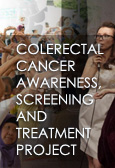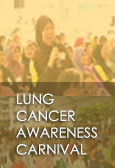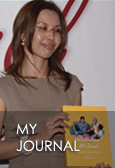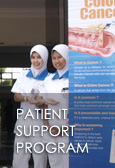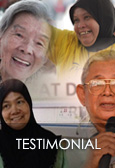1st Train The Trainer's Workshop
The first ‘Training of Trainers’ Workshop took place on 29/4/09 at Eastin Hotel. The objective of this workshop was to develop communication and mentoring skills of our would be EMPOWERED trainers. 50 trainers from ministry hospitals (12 states), NGOs and community participated in this first of its kind workshop.
This is the first workshop conducted under EMPOWERED Friend programme. The aim was to provide training to the less experienced members in the areas of communication skills and support group facilitating skills, so that they can become effective communicators with the cancer survivor community and caregivers. Trained members will become mentors for the less experienced members who join the programme in the future. 44 participants from various governmental and nongovernmental healthcare organizations in Malaysia attended the workshops. We thank Bayer-Schering Sdn Bhd for sponsoring this workshop that has benefited participants with fresh approaches and enhanced knowledge in managing a cancer patient or caregiver.
Highlights of the workshop
Workshop 1: Mentoring New ‘Friends’ conducted by Brother Dominic Yeo Koh
- Participants learnt the concept of mentoring, which can be applied in counselling a cancer friend or mentoring a new EMPOWERED Friend.
- A good mentor should possess qualities such as; being patient, willing to listen, and being positive about the negative reactions towards his or her work. A good mentor also continuously updates his or her own knowledge in this area of services.
Workshop 2: Debriefing – Psychological Debriefing (PD) conducted by Brother Dominic Yeo Koh
- PD is basically a short and brief approach to help people deal with very intense emotional experience and stress after going through an abnormal event in life. The purpose of PD is to prevent onset of more long-term psychological problem, e.g. post-traumatic stress disorder.
- Some individuals are unable to cope with abnormal stress and a formal debriefing, which consists of seven phases, is important because it allows traumatised individual to review his or her experience, acknowledge and express his or her emotions openly, and gain insights from the event with the help and support of the group member.
- Focus of a debriefing session is on the feelings of the participant, rather than facts of the incident. The ability to sense the feelings and emotions of the person who is talking can be developed by sharpening listing skills through practice.
Workshop 3: Communications Skills conducted by Professor Ian Olver
- Poor treatment compliance and dissatisfaction with caregivers are often due to poor communication, which may cause patients to experience increased anxiety, depression and anger. Good communication encourages patients to express their concerns and ask questions freely.
- Some techniques to use when interacting
with patients are:
- Ask open-ended questions
- Use simple and clear language without jargon
- Respect patient’s silence and give them space and time to think before they express their concerns
- Anger management - must be managed appropriately before effective communication can take place.
- A role-play session took place to demonstrate a scenario of dealing with an angry relative of a cancer patient. Workshop 4: Facilitating a Group conducted by Professor Ian Olver A facilitator is usually someone with experience of cancer as a patient or carer. As a facilitator, one should:
- Balance own experiences with needs of the group to deliver appropriate and relevant messages.
- Plan agenda carefully, allocating time for business and a break.
- Have empathy.
- Be aware of cross-cultural or religious differences.
- Not force members to participate
- Give equal support to all members in the group.
- Constantly review what he or she does and continue to learn to improve skills required to facilitate a support group effectively. Workshop 5: Sharing Grief and Bereavement with Cancer Friends conducted by Dr Rachel Ting and Reena Rao
- There are five stages of grief, which are denial, anger, bargaining, depression and acceptance.
- A counsellor to cancer patients should know which stage patients are at, and continue toprovide support, until they are ready to move on.
- A role-play session took place to demonstrate how to share grief with a cancer patient.
- Dr Rachel Ting Sing-Kiat, Clinical Psychologist & Senior Lecturer, HELP University College, Kuala Lumpur
- Professor Ian Olver CEO, Cancer Council Australia
- Brother Dominic Yeo Koh Tuan Kiok, Director, Monfort Centre, Singapore
- Ms Reena Rao, Post-graduate, Clinical Psychology Program, HELP UniversityCollege









